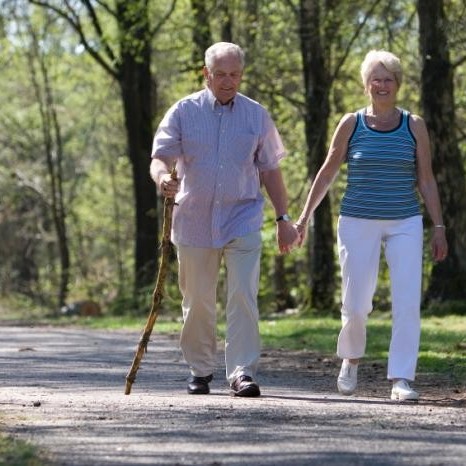
posted 25th May 2023
As we age, our muscles weaken, and our balance decreases, and we become more likely to fall. Older people are much more vulnerable and likely to fall and even more so if they have a health condition. Approximately 1/3 of adults over the age of 65 who live at home experience at least one fall a year, Furthermore, around half of these will fall more frequently. Luckily, most falls don't result in serious injury. However, when the person is older, their bones are much more prone to fracture or breaking. Falling can also crush someone's confidence and make them feel as though they are losing their independence.
How can you help if an elderly person falls?
If you witness someone fall, try to ensure that they visit their GP, walk in clinic, or A&E for a check over.
Often, older people may hide an injury because they fear losing control of their independence. They might also feel embarrassed by the ordeal. It's important to reassure them. Make sure they know, that even if they need some help, their dignity and independence would be retained.
Do not try get them up immediately
You need to check for injuries first. Try to calm the person by asking them to take some deep breaths. They may well be in some shock, so you can do this with them to begin with. Circular breathing can be effective; breathe in through the nose and out through the mouth. While they are doing this, you can check them over for skin discoloration, swelling, or other sign of serious injury.
Keep them calm and lying down until help arrives. If there are no obvious signs of injury, offer to assist the person in getting back on their feet. It is important that you only assist and not try do it for them. Encourage them to take their time getting up gradually and carefully.
Following up
Always try to arrange a visit to the GP following an elderly fall as often, injuries may take a while to become obvious. If the person that fell is a loved one or a friend, keep an eye on them for a few days and check in on them regularly.
A fall can be difficult to brush off and severely damage confidence levels.
Falls prevention
It’s also a good idea to ensure that your older loved one can get about the house safely. Here are some tips to minimise the risk of falling.
-Assess whether they might need a walking frame, or a stick to help to get around.
-Make sure their sight is tested regularly.
-Check the home for any trip hazards – often older people like to keep frequently used things close to them to limit the amount of movement, especially if they have a lack of mobility. You may be able to help by getting them some easy access storage solutions to be placed where they like to sit.
-Check with your older relative to see if they are struggling to use the bathroom safely.
-Check the floors for trip and slip hazards – this might be rugs, unstuck lino, cables etc.
-Make sure they can easily gain access to cupboards or things that they need.





